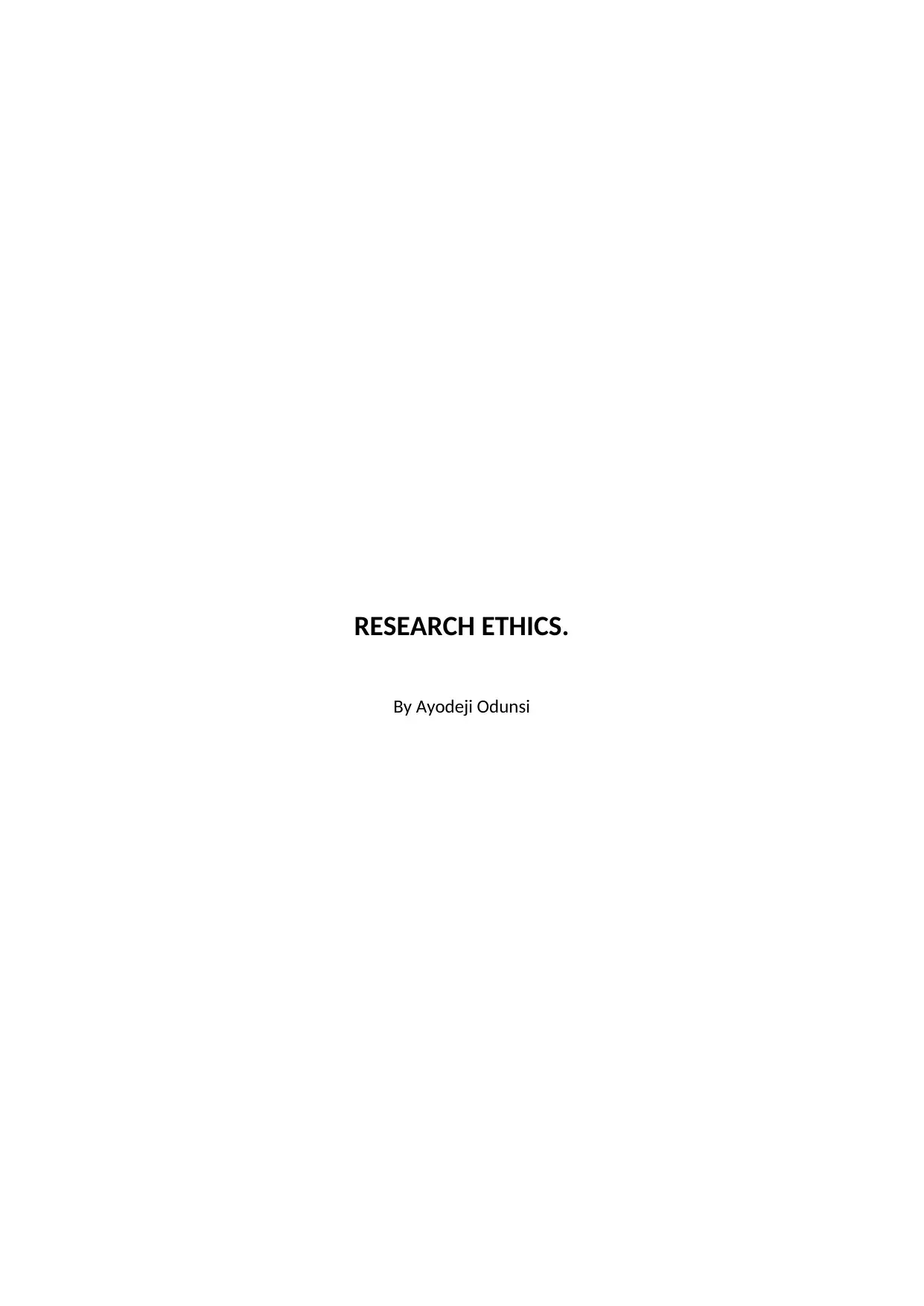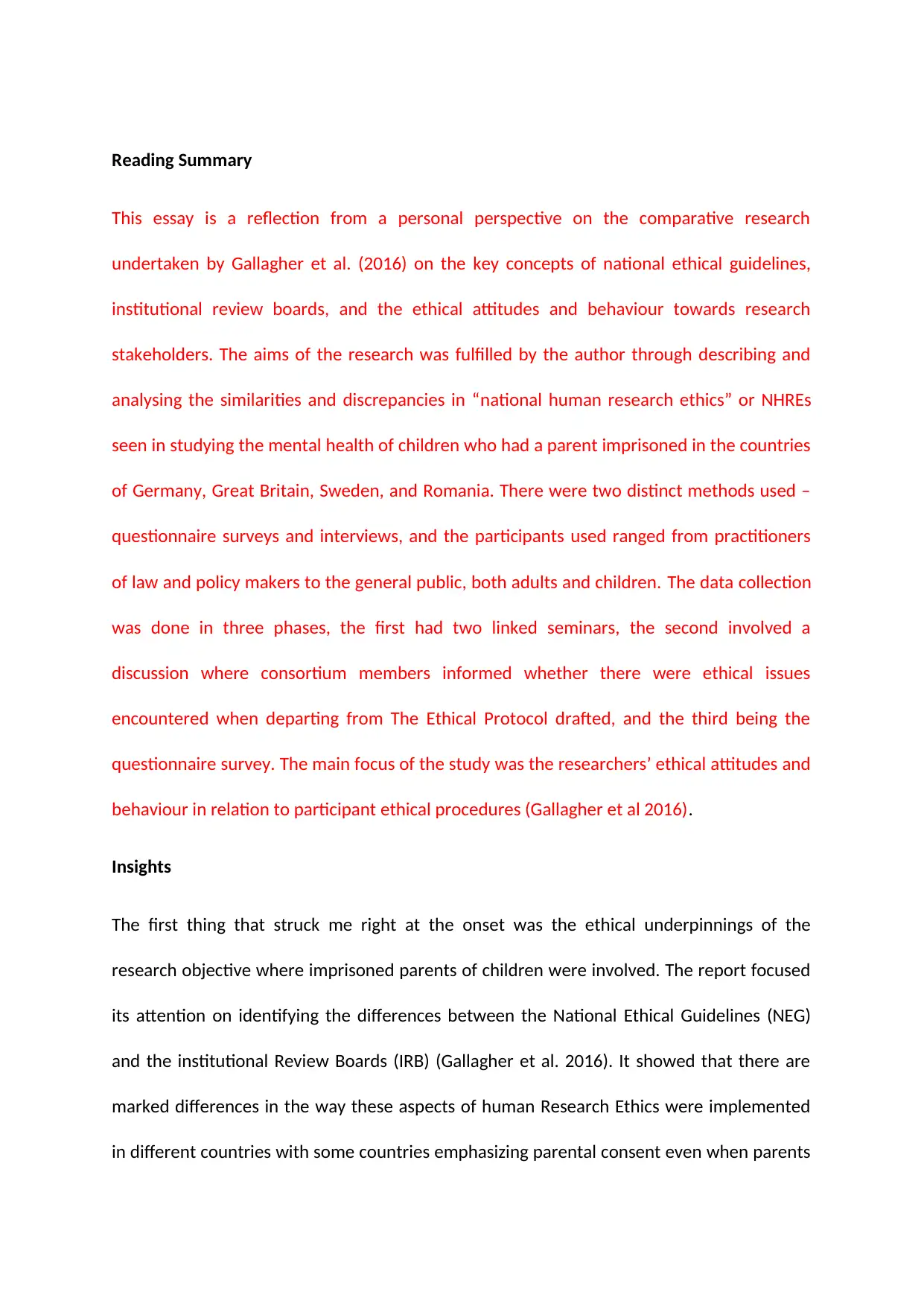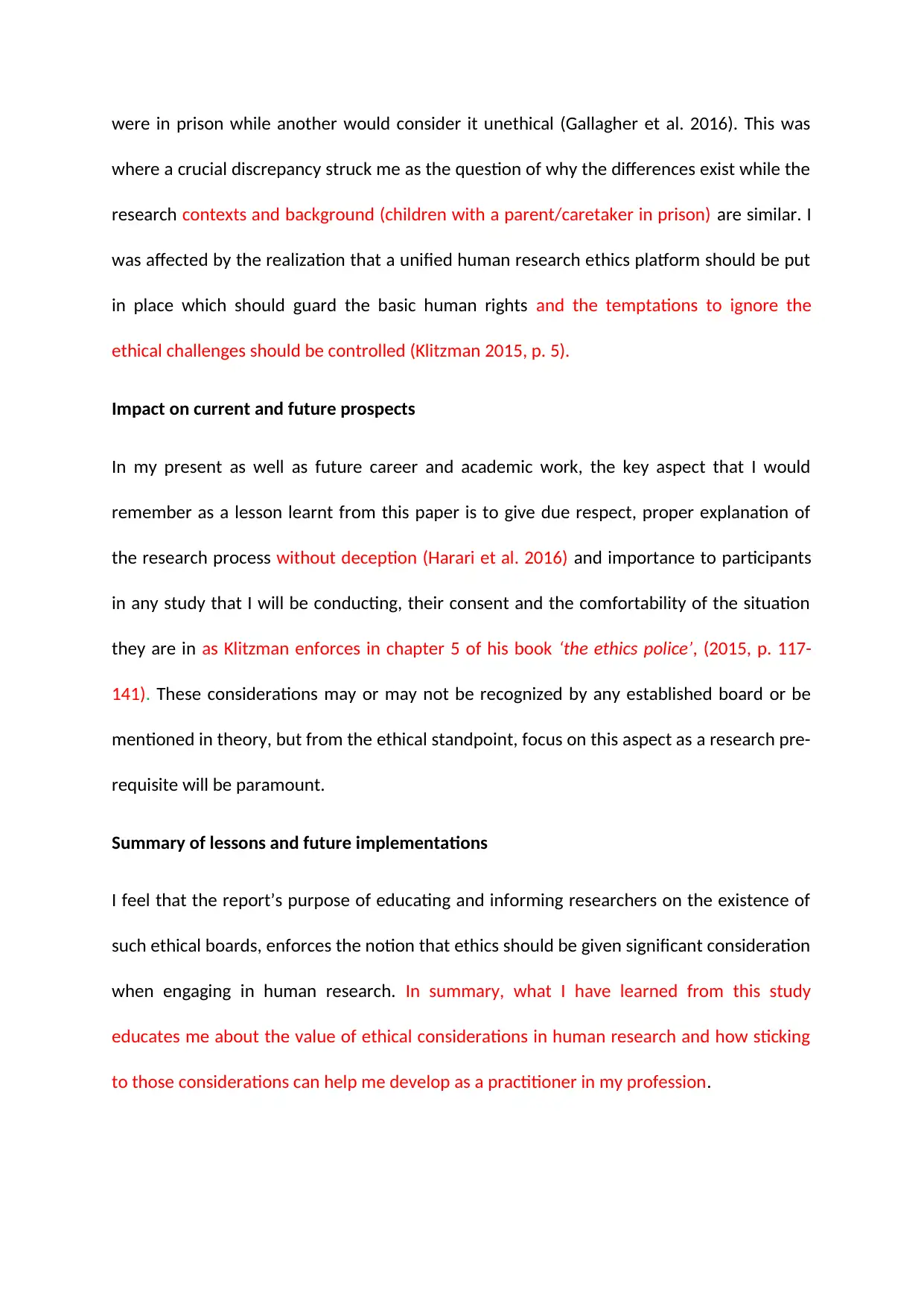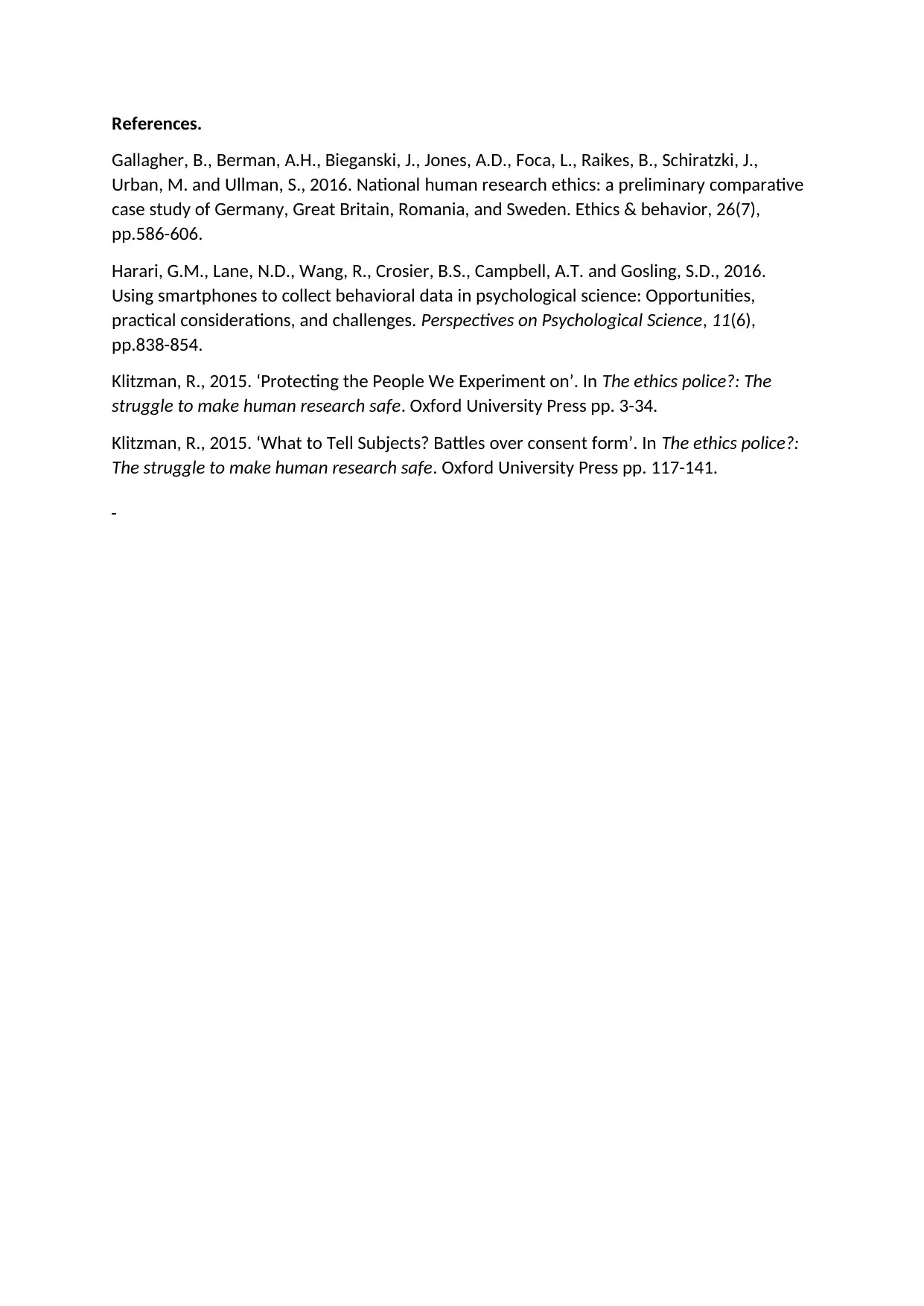Research Ethics Reflection on National Human Research Ethics Study
VerifiedAdded on 2022/09/18
|4
|818
|28
Report
AI Summary
This report is a reflection on a research study by Gallagher et al. (2016) comparing national ethical guidelines, institutional review boards, and ethical attitudes in research across Germany, Great Britain, Sweden, and Romania, focusing on mental health research involving children with imprisoned parents. The author analyzes the discrepancies in ethical implementations, particularly concerning parental consent, and highlights the importance of a unified ethical platform to protect human rights. The reflection emphasizes the need for respect, transparency, and participant comfort in research, drawing on insights from Klitzman (2015). The author concludes with the significance of ethical considerations in human research, emphasizing the development of ethical practices in their career.
1 out of 4









![[object Object]](/_next/static/media/star-bottom.7253800d.svg)